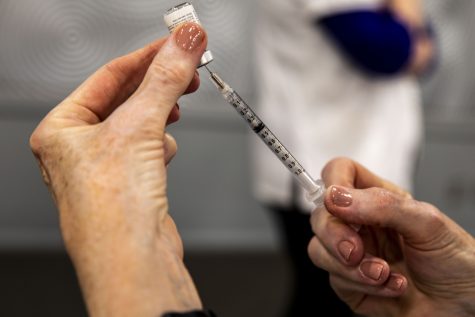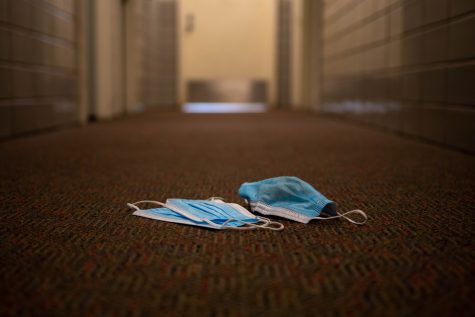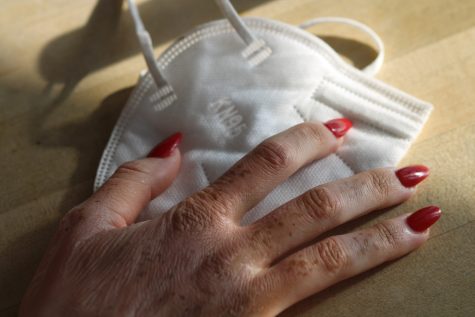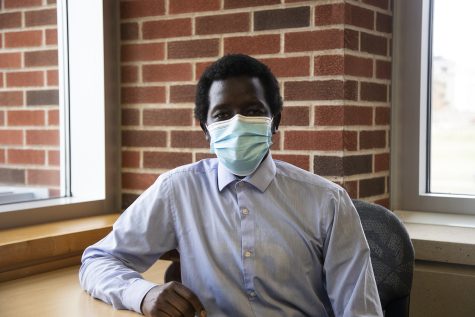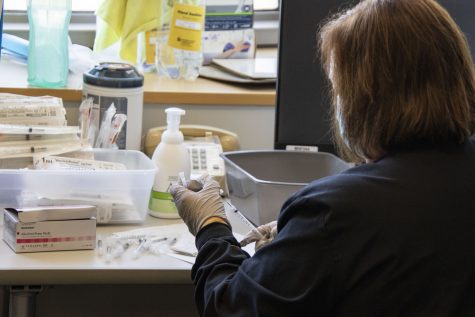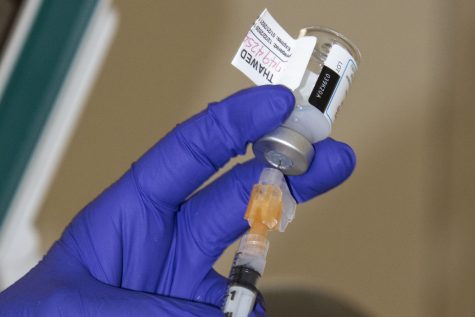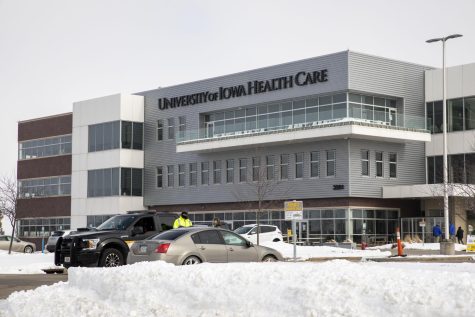Public health officials ramp up surveillance testing and contact tracing at essential businesses
With confirmed outbreaks at two meat-packing plants in Iowa, public health officials are ramping up testing at facilities and taking increased measures to contain the spread.
Gov. Kim Reynolds speaks during the Condition of the State address at the Iowa State Capitol on Jan. 14.
April 20, 2020
The Iowa Department of Public Health is ramping up surveillance testing for COVID-19 and contact tracing at essential businesses, especially meat-packing plants where at least two outbreaks have been identified in the state.
In a press conference with Gov. Kim Reynolds on Monday, Iowa Department of Public Health Deputy Director Sarah Reisetter said surveillance testing, which is testing everyone at a workplace whether or not they show symptoms, can help officials understand how much of the workforce is affected.
Reisetter said the Iowa Department of Public Health has asked businesses to report if 10 percent of their workforce is absent or sick, and she said the department will conduct surveillance testing and contact tracing at some of those locations.
“Some businesses in Iowa have already requested support for surveillance testing, and we will continue to work with these businesses on a case by case basis to respond to their needs,” she said.
After surveillance testing is done, Reisetter said contact tracing can be conducted to identify who positive individuals have been in contact with. She said the state has hired dozens of new contact tracers, many of whom are bilingual, to assist local public health officials and target specific communities.
The department has identified outbreaks in two meat-packing plants, a Tyson plant in Columbus Junction and a National Beef plant in Tama. Reynolds said all employees at both plants have been tested for COVID-19.
Reisetter said they are working closely with those plants to contain the spread, and the department will release the names of other businesses that see outbreaks when necessary to protect the public health.
Reynolds said she is working with the affected businesses to contain the spread, but that keeping the plants open is essential to the food supply. She said farmers may have to euthanize hogs if plants close down and they can’t be moved through the production process.
“We’re not that far from it, and it will be devastating,” she said. “Not only for the food supply but for the cost of food going forward.”






